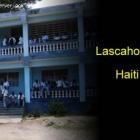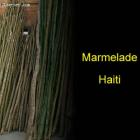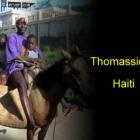ADVERTISEMENT
Black American - Haiti Observer Blog
Black American, Haiti Observer Blog. Read the following articles about Black American
Frederick Douglass, a Friend to Haiti
Frederick Douglass, born into slavery in 1818, escaped his slave master and became a writer, speaker, and public servant. He was beaten from child- into early adulthood by his slave master. After one beating too many, he decided he was never going to tolerate another. When the slave owner tried to beat him, Frederick ferociously fought back.
By 1893, he was the leading black intellectual of his era, having penned many autobiographies detailing his life as a former slave. He put the lie to the argument slaves did not possess intelligence to lead their own lives with all the rights accorded to white citizens.
Michel Martelly invited to attend NAACP National convention in Florida
The Haitian President, Michel Martelly was invited to participate in U.S. oldest civil rights organization, the National Association for the Advancement of Colored People, (NAACP) national convention in Florida. The convention will run from Saturday July 13, 2013 and continues Wednesday of that same week
The NAACP will mark this year to major events in the history of movement: the 150th anniversary of the Emancipation Proclamation and also the 50th anniversary of the assassination of Mississippi NAACP leader Medgar Evers.
More picture and information about Haiti and its relationship with Black Americans
Founded in 1909, the NAACP is the oldest and largest civil rights organization in the United States. Its objective is to ensure the political, educational, social, and economic equality of rights of all persons and to eliminate race-based discrimination.
Ile-a-Vache, Abraham Lincoln an Free American Slaves
Abraham Lincoln, before signing the Emancipation Proclamation, struck a deal with the landowner of Ile-à-Vache, a vacant island near the southern coast of Haiti. He contracted to send former slaves there to avoid racial uprisings on U.S. soil. The plan failed and Lincoln's decision has been debated by historians, trying to define his presidential character in the context of it. A perfect storm of disease, greed, and mistrust between government and private individuals brewed destructive forces, foiling a well-intentioned effort to deal with the aftermath of abolition in the U.S.
The ship traveling to Ile-à-Vache suffered an outbreak of smallpox en route. The 4,500 infected settlers were isolated, awaiting a second-supply ship that never arrived. This failure caused conflict to erupt between the landowner, his patrons, and agents of the U.S. government. The 500 unaffected settlers became stranded on Ile-à-Vache, and in rebellion ran the landowner off. Lincoln was forced to return the settlers to the U.S.
Fabre Geffrard allowed African-Americans to settle in Haiti
Guillaume Fabre Nocolas Geffrard or simply Fabre Geffrard was the 10th President of Haiti who sworn in as the head of the Republic in 1859 and stayed in power till 1867. Few of his important achievements include placating peasants through revival of state-owned land selling practice and he also ended the differences with Roman Catholic Church. As the schism was erased, the Roman Catholic Church eventually played a very crucial role in improving the education system in Haiti.
The first thing Fabre Geffrard did after coming to power was that he reduced the army size from 30,000 to its half at 15,000 and at the same time created presidential guards who were trained by Fabre Geffrard himself. In 1859, the National Law School was founded by him and the Medical School started by Boyer was reinstituted. Several lycea were established and modernized by his two ministers François Elie-Dubois and Jean Simon Elie-Dubois. In 1863, the colonial rule of building and maintaining roads were reintroduced. In 1861 African-Americans were allowed to settle in Haiti.
Our objective is to share with you news and information about Haiti and the people of Haiti. Traditions, habits and the way we were or grew are alive in this site. We highly recommend that you Subscribe to our Newsletter and also share with us some of the things that are memorable and made us unique people.

 Lascahobas, Haiti
Lascahobas, Haiti  Newsletter
Newsletter  Marmelade, Haiti
Marmelade, Haiti  La Chapelle, Haiti
La Chapelle, Haiti  Thomassique, Haiti
Thomassique, Haiti